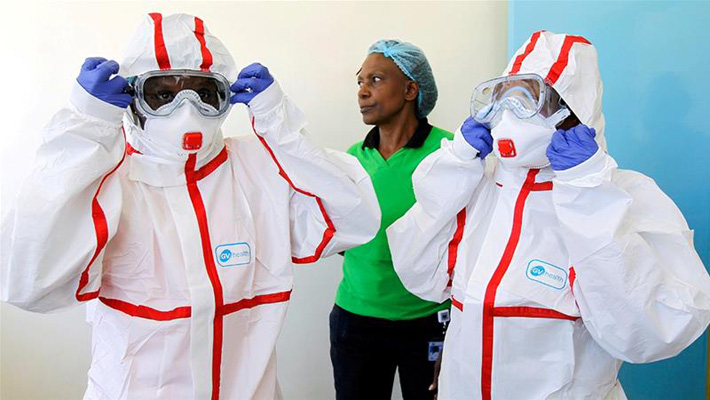NAIROBI, MARCH 17, 2020 (CISA)-The Kenya Conference of Catholic Bishop (KCCB) has given guidelines for Churches to observe during liturgical celebrations to prevent the spread of Covid-19 among faithful after Kenya confirmed first cases of the virus.
In a March 14 statement, signed by the Secretary General of KCCB Fr Daniel Rono, the bishops noted that in the light of thousands of infections across the globe, The Church ought to be in a state of preparedness so that further spread may be easily contained.
“We strongly exhort priests to observe the highest level of hygiene in the liturgical ceremonies. Specifically, we ask them to wash their hands thoroughly with soap and water before any liturgical celebration and to use soap in the lavabo rite of the Mass to ensure total cleanliness as they come in contact with the bread and wine,” the statement reads.
In giving Holy Communion to the sick, “the priests are urged to observe high level of hygiene by washing hands before and after Holy Communion or anointing of the sick, to avoid any infection to or from the sick.”
The bishops called on altar servers and any extraordinary minister who comes into contact with liturgical items must observe the same high level of hygiene.
Holy water from water fonts will be removed temporarily. Faithfull however may carry Holy Water for use in the homes and even for personal use as they pray.
“Faithful are advised to wave at each other during the exchange of peace at Mass to avoid contact through handshakes or hugs,” reads the statement futher directing anyone suffering from a cold to abstain from Mass celebrations until they fully recover.
The faithful are urged to receive Eucharist by hand and not by mouth.
The faithful are urged to follow prevention measures issued by the Ministry of Health and World Health Organization(WHO) like Washing hands with soap and water as often as possible, provide sanitizers at strategic places, Church, meeting halls, and parish offices.
“Everyone is advised to cover the mouth and nose when sneezing and coughing to avoid infecting people, surfaces and items around them. Anyone with a flu should go and get checked at a health facility so that any incidental infection may be caught in time,” it adds.
Kenya has so far recorded three cases. Other African cases that have most recently recorded first cases include Somalia, Ethiopia, South Sudan, Tanzania, Benin and Liberia.
At least 27 African countries have registered cases with most of the cases involving people arriving from Europe and North America.
According to WHO, nearly 350 people have been infected. Seven have died and 42 have recovered across Africa.
Although Africa’s handling of the pandemic has received scant global attentions so far, experts worry that the virus may ravage countries with weak health systems, a population disproportionately affected by HIV, Tuberculosis (TB), Ebola and other infectious diseases especially in overcrowded cities and slums.
